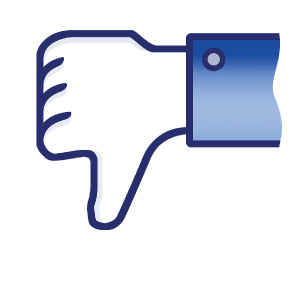Don’t Lose Your Job for Facebook

Great. It’s a tool that we’re able to use for work. Lovely. So those early years of logging on during work hours are now completely justifiable. But can we have too much of a good thing?
The research says yes. Social networking can have a bit of an addictive bent and any addiction can adversely affect your work. How? Let me count the ways:
1) Time. Studies suggest people may fail to resist social media so much because there is no obvious or immediate downside to checking services like Twitter or Facebook. These services can ultimately be a huge drain on users’ time.
2) Anxiety. People who suffer from anxiety or social insecurity skew toward heavier usage of Facebook, likely because it’s easier to use the technology than to communicate with people in person, something that many jobs require (especially a recruiting gig).
3) It can show your true colors. A study found that extroverted people were more likely to be addicted to Facebook. But people who were well organized and ambitious tended to use the website primarily for work or networking purposes.
4) Productivity. Dr Wilhelm Hofmann, who led a research study published in the Psychological Science journal, said: “As a day wears on, willpower becomes lower and self-control efforts are more likely to fail.” when it comes to the addictive nature of Facebook (in some studies it was found to be more difficult to resist Facebook than a glass of wine), the entire afternoon can be eaten away, leaving you with a larger pile in the morning.
Companies that allow users to access Facebook in the workplace lose an average of 1.5% in total employee productivity, according to a 2010 report from Nucleus Research, an IT research company. The survey of 237 employees also showed that 77% of workers who have a Facebook account use it during work hours.
5) You may slip up. While we’ve all heard reports about folks that have been fired for Facebook mishaps, many of us remain secure in the fact that we’re professional people, generally skilled in using social media for good. And while there are a lot of stories that give us a good chuckle, some people get fired for seemingly innocuous Facebook missteps. Like the Goergia teacher who had pictures of her with wine and beer and who posted an update with an expletive. Or the Swiss woman who was fired for using facebook on her phone while at home sick.
And there are still battles to be waged. Some Facebook firings set precedent, others are creating policy as we speak, even calling into question the First Amendment. While so much still remains unknown, it’s wise to be very cautious on Facebook. While there have been some reports of Facebook and websurfing increasing productivity at work (as of late) don’t get sucked in for more than ten minutes … at least during work hours.

